Human Taxonomy: Narrow Nationalism, Advanced Internationalism, and Hypocritical Neoliberalism
Text/Fries Fries
foreword
A nation can be defined as: a stable community formed by human beings in history with a common language, common geography, common economic life, and common psychological qualities in expression and culture.
However, the purpose of writing this article is not to explain what a nation is, but to sort out my personal reflections on nationalism, and make everyone think: " What is the significance of nationalism in today's world?"
There are all kinds of contradictions and conflicts between classes at home and between countries internationally, and in this article, I will try to connect these different contradictions and conflicts , to sort out and present to the readers the process of establishing my personal view of national identity.
Active militarism and passive Defence
In history, there have often been some rulers who took nationalist slogans such as "national rejuvenation" and "national interests" as the main political goals of the country, and they provoked bloody tragedies one after another by inciting nationalist sentiments. During World War II, the Nazi German government claimed that for the benefit of the Germanic nation, it aggressively invaded the territories of other countries, and slaughtered the Jews of its own country and other countries with great fanfare. The Japanese military government claimed that for the benefit of the Japanese nation and the Japanese nation's symbol and spiritual idol, the emperor, wantonly invaded China and massacred thousands of Chinese.
Conflicts between ethnic groups have arisen in this way. In order to resist the invasion of foreign enemies, in order to protect their families from being brutally killed by the enemy, they must pick up guns and fight back. Defenceism is the product of such a militaristic aggression, and its emergence is an inevitable phenomenon. If in such a situation to persuade the people to "don't engage in nationalism", then this is not only unrealistic, but in fact it also stands on the opposite side of the people.
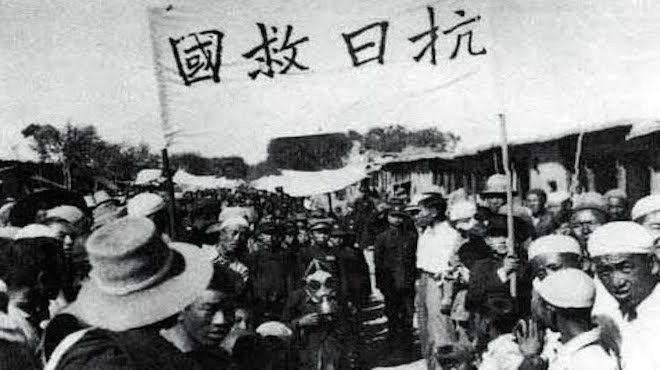
The passive nature of national defense is actually very similar to the active nature of militarism in operation. All nationalist ideologies are nothing more than to achieve the purpose of national unity through national slogans. Militarism unites the people through nationalist slogans as a means of gaining the strength of aggression. Nationalism unites the people through nationalist slogans as a means of gaining strength to resist aggression. By observing all the practices of nationalism in history, a rule can be found. The banner of "national justice" is very easy for the regime and leaders to carry, and the benefits it can achieve are great.
We might as well think about whether there is a possibility of forgery in this active and passive ethnic relationship? Can the regime create an illusion for the people that "our nationalism is justified because we are a passive nationalism that is necessary to resist oppression and exploitation"? Because the banner of "national justice" is easy to carry and can bring great benefits, will this make it a very useful tool for the regime to achieve its political goals?
In fact, this has often happened throughout history. Nazi Germany claimed that the Jews were "secretly trying to control the world" and attributed all economic, political and humanitarian crises in Germany and even the world to the Jewish conspiracy. When this conspiracy theory took root in the hearts of the people, all the suppression and slaughter of the Jews by Nazi Germany became justified, because they were "resisting the exploitation and oppression from the Jews" and their nationalism was "the inevitable product of the oppression." ". The Japanese militarist government also did the same. The theory of the "Greater East Asia Co-Prosperity Sphere" is to "rebel against Western colonialism and imperialism" to "liberate Japan and other oppressed peoples in East Asia". This banner of "passive nationalism" made the Japanese people accept the legitimacy of the government's declaration of war.
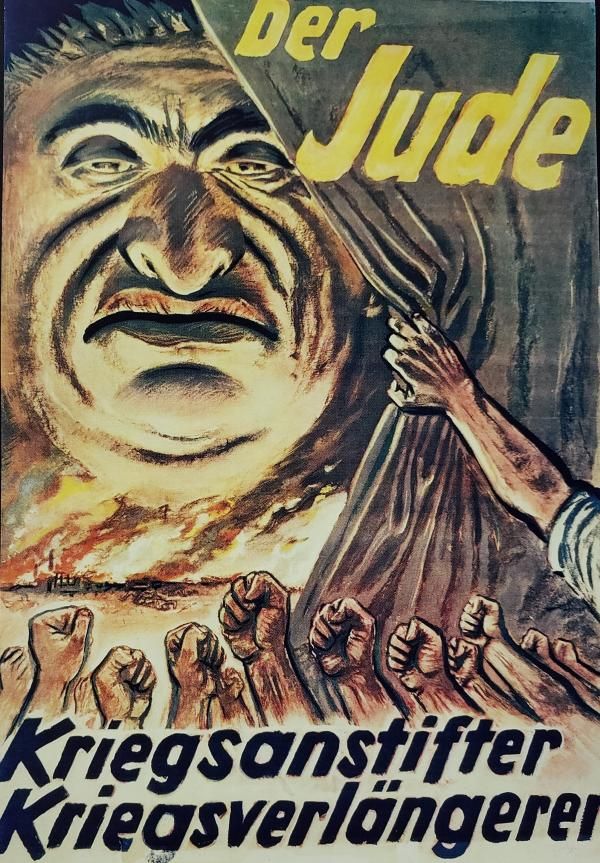
nation and class
Internationalist warrior, Norman Bethune wrote in his poem "Trauma":
What is the reason for this cruelty, this stupidity? One million workers came from Japan to slaughter and maim tens of thousands of Chinese. Why should the Japanese worker attack his Chinese worker brothers and force them to defend themselves? Is the death of the Chinese good for Japanese workers? No, how can they gain anything? So, God, who will profit? Who should be responsible for sending Japanese workers to China on such a killing mission? Who will profit from it? How could it be possible to persuade the Japanese workers to attack the Chinese workers - their brothers in poverty, their companions in pain? Is it possible for a small group of rich people, a small class, to persuade a million poor people to attack and try to destroy a million people as poor as themselves so that the rich get richer? This is a terrible idea! How did they persuade these poor people to come to China? Tell them the truth? No, if they knew the truth, they would never come to China. Do these rich people dare to tell the workers that they just want cheap raw materials, bigger markets and more profits? No, they just told the workers that the war was for "race destiny", for "glory of the emperor" and "honor of the country", for their "emperor and country". absurd! Absolutely ridiculous! The agents of such a war must, like the agents of other crimes, such as murderers, be chosen from among those who may profit. Will 80 million Japanese workers, impoverished farmers and unemployed workers profit from it? From Spain's invasion of Mexico, England's invasion of India to Italy's invasion of Ethiopia, have the workers of these so-called "victorious" countries benefited throughout the history of wars of aggression? No, they never benefited from the war. Do Japanese workers benefit from the country's natural resources, gold, silver, iron, coal and oil? Long ago, they ceased to have natural resources. Because they belong to the rich, the ruling class, and hundreds of miners still live in poverty. How, then, could they possibly profit by armed plundering of China's gold, silver, iron, coal and oil? Don't the rich in one country occupy the wealth of other countries for their own benefit? Don't they do it all the time?
People are self-interested, and classes arise when a group of groups with similar economic resources and the same interests emerge. The government is the representative of the ruling class, through which the ruling class can implement policies and laws that are beneficial to them. In today's capitalist-dominated world, the bourgeoisie is the ruling class, which holds the means of production, monopolizes social wealth and the right to control production activities. The news media and newspaper offices are set up by capitalists, and the public opinion and discourse power of the entire society are in the hands of the bourgeoisie.
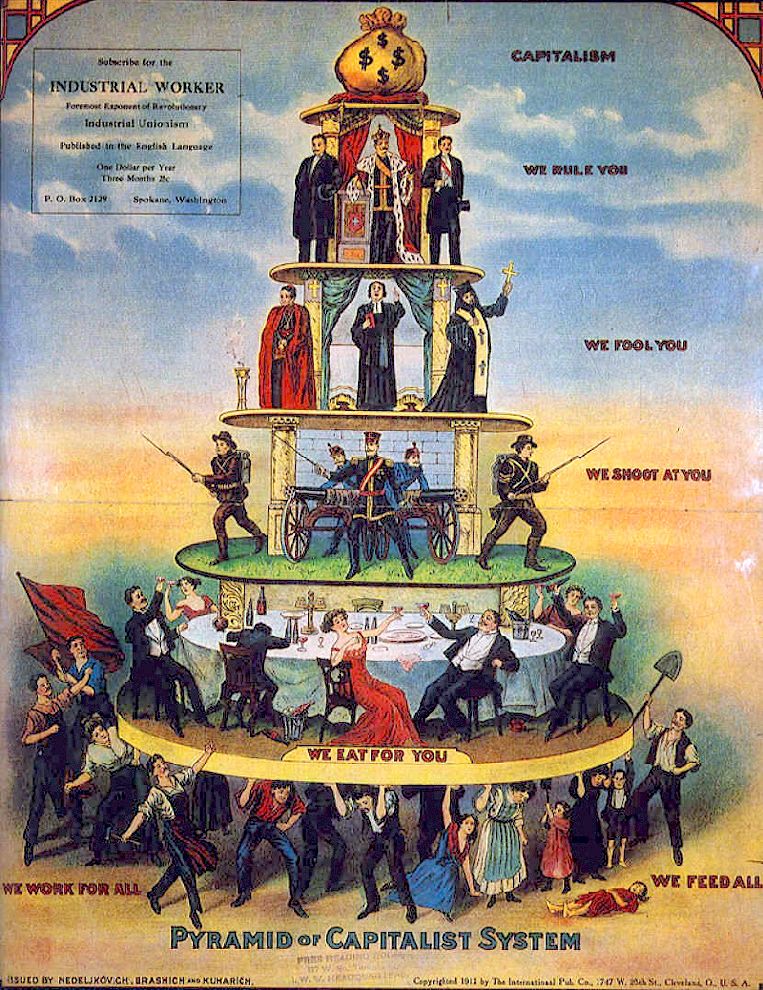
Since the government is the representative of the bourgeoisie, it must seek the greatest interests for the bourgeoisie. The government must not only maintain the dominance of the bourgeoisie, but also allow workers to create surplus value for them willingly. The bourgeoisie has two sharp swords, one is the army and the police to maintain its dominant position, and the other is the ideology that makes the people willing to accept the rule. Ideology includes political ideology, religious beliefs, and nationalism.
Nationalism is in most cases an emotion rather than a specific political goal. When people need support for their own regime's policies of aggression and colonization of other countries, nationalist sentiments can be used to convince the people that this is a war for "national justice". When it is necessary for the people to oppose a certain political group in the country, nationalist sentiments can be used to convince the people that this political group is in conflict with "national interests". And when it is necessary for the people to willingly accept the exploitation of every inch, nationalism can be used to convince the masses that "overtime/low wages/capitalist market/sweatshops are necessary for the interests of the whole nation at this time."
When conflicts and violence arise from class conflicts, when some people start to feel angry about exploitation, nationalism will always be the best tool of the ruling class. Nationalism can be used to cover up all class contradictions. In order to alleviate class contradictions, Western countries need constant compromises, such as establishing trade unions and implementing labor laws. Therefore, the western bourgeoisie has lost many interests. But nationalist countries do not need to establish independent trade unions, and they do not need to enforce labor laws, because they only need to cover these contradictions with nationalist sentiments. The cost of driving nationalist sentiment is extremely low or even none in the short term, and the “cost-effectiveness” of using nationalism is extremely high.
Anti-nationalism of the proletariat and the bourgeoisie
Thus, in today's world dominated by capitalism, nationalism is in most cases contradicting the interests of the proletarians. Therefore, if the interests of the proletarians are to be fought, then nationalism must be opposed. The proletarian ideology against nationalism is called internationalism, emphasizing that the proletariat of the world must stand together against bourgeois domination and exploitation. The bourgeoisie also has ideas against nationalism, called "neo-liberalism", advocates free trade in the world, and believes that economic and military means should be taken to expand the international market when necessary.
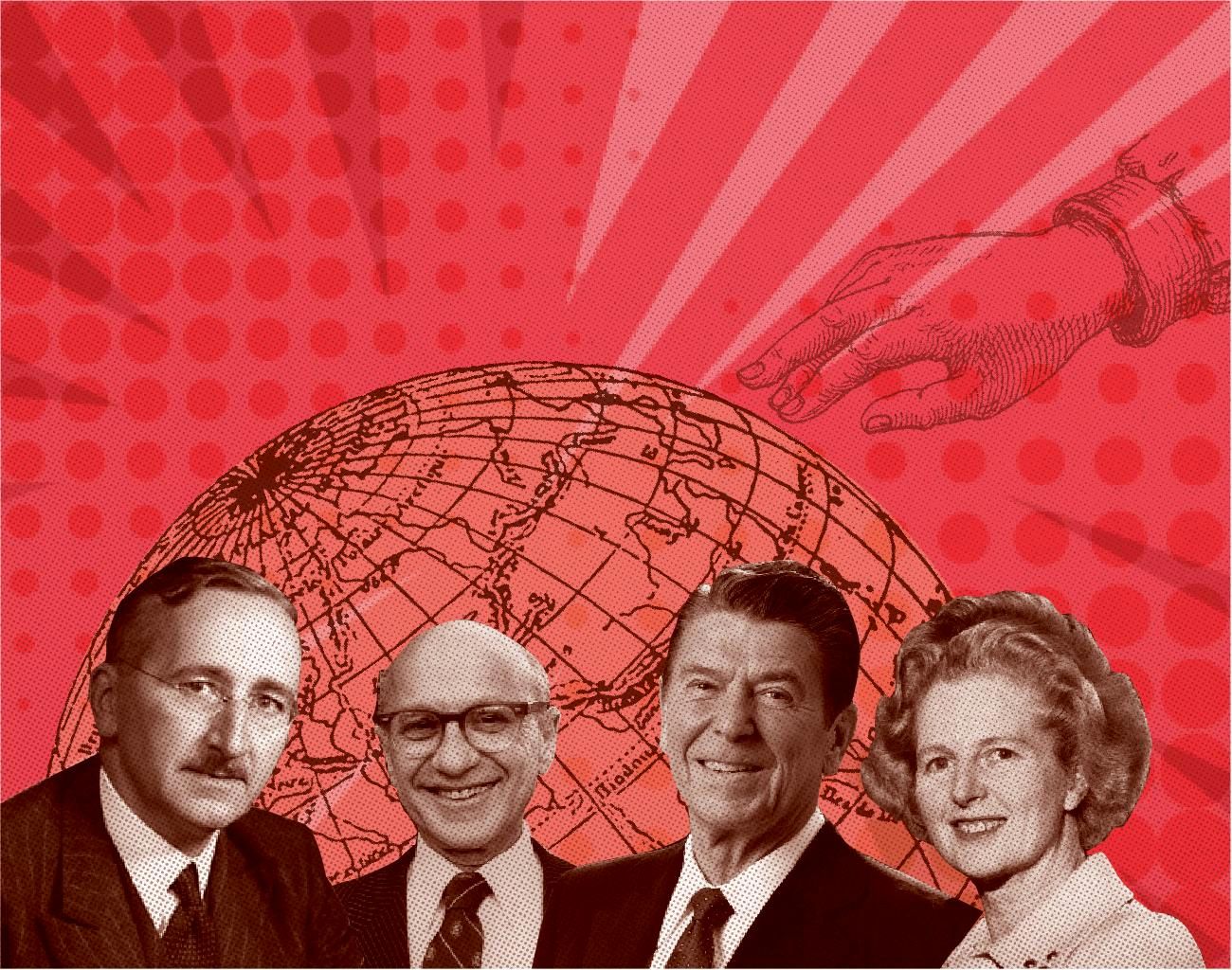
The anti-nationalist form of neoliberalism is harmful to the proletarians and its essence is modern colonialism and imperialism. As mentioned above, the government is the representative of the interests of the ruling class, and under the premise of capitalism, it is a tool to safeguard the interests of the domestic bourgeoisie. In addition to the use of nationalism and other means to transfer class contradictions in order to maintain the legal rights of the bourgeoisie, the class interests of the bourgeoisie also have other elements directly related to the interests of the bourgeoisie, such as land, manpower, material resources and technology. Factors allow the bourgeoisie to expand production and gain more benefits from it.
"The need to continuously expand the market of products drives the bourgeoisie to run around the world. It must be settled everywhere, developed everywhere, and established connections everywhere." - Marx, Engels, "Communist Manifesto"
In the past, the bourgeoisie used direct aggression and looting to obtain these resources, while today’s bourgeoisie has replaced a more efficient, more subtle, and less provocative means of class contradictions—free markets and capitalist globalization change. For example, a bourgeois in a western developed country wants to exploit more surplus value through cheap labor, so he can build a factory in an underdeveloped developing country. In order to attract foreign capital to integrate into the global capital market, these developing countries must create an environment that can tolerate the existence of "sweatshops", such as extremely low wages and extremely high working hours. Entering the global capitalist market is an opportunity for the capital and bureaucratic capitalists of the country to take advantage of the opportunity. They obtain a lot of benefits by selling the labor force of the proletarians in their own countries. Therefore, the capital and bureaucratic capitalists of these developing countries In fact, it is a vested interest in the exploitation of the third world countries by the bourgeois imperialism of the developed countries.
in conclusion
The so-called neo-liberalism is an extremely ruthless exploitation of the proletariat by the bourgeoisie all over the world who profit from imperialist exploitation. False declaration. The internationalism pursued by the proletariat is when the proletarians of the world come together to realize that "the refined nationalism that corrupts the workers" (Lenin wrote in 1914) is fundamentally at odds with their class interests and no longer Those who listen to the prejudice against other nations created by the bourgeoisie belong to the identity of the proletariat.
" Workers have no fatherland. They must not be deprived of what they do not have. " - Marx and Engels, The Communist Manifesto
" Elaborate nationalism is an idea that advocates the split of the proletariat under the prettiest and most eloquent pretexts, such as the protection of "national cultural" interests, the protection of "national self-determination or independence", etc. The workers are fighting back with all their strength against all kinds of nationalism, whether it is crude, violent, gangster nationalism, or advocates for equality of all ethnic groups and at the same time... The most refined nationalism of the movement. Class-conscious workers are implementing the resolutions of a recent (summer 1913) conference of Marxists who, unlike the various nationalist bourgeoisie, not only insist on The language must have the most complete, consistent, and complete equality. And it is also insisted that the workers of all nationalities must be integrated in the various unified proletarian organizations. " - Lenin, "The Refined Nationalism That Corrupts the Workers"
Proletarians of the world, unite! Workers of the world, unite!
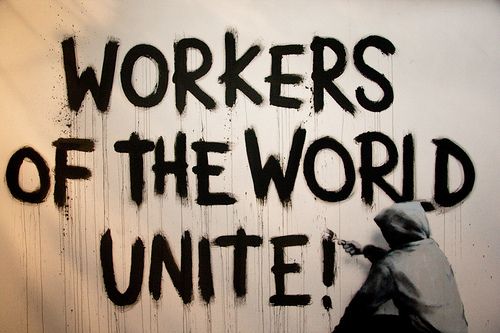
References:
- Norman Bethune, Trauma, https://www.marxists.org/chinese/reference-books/poems-of-struggle/canada-norman-bethune.htm#2
- Karl Marx, Friedrich Engels, The Communist Manifesto https://www.marxists.org/chinese/marx/01.htm
- Vladimir Lenin, The Refined Nationalism That Corrupts the Workers, https://www.marxists.org/chinese/lenin/marxist.org-chinese-lenin-191405.htm
Like my work? Don't forget to support and clap, let me know that you are with me on the road of creation. Keep this enthusiasm together!
